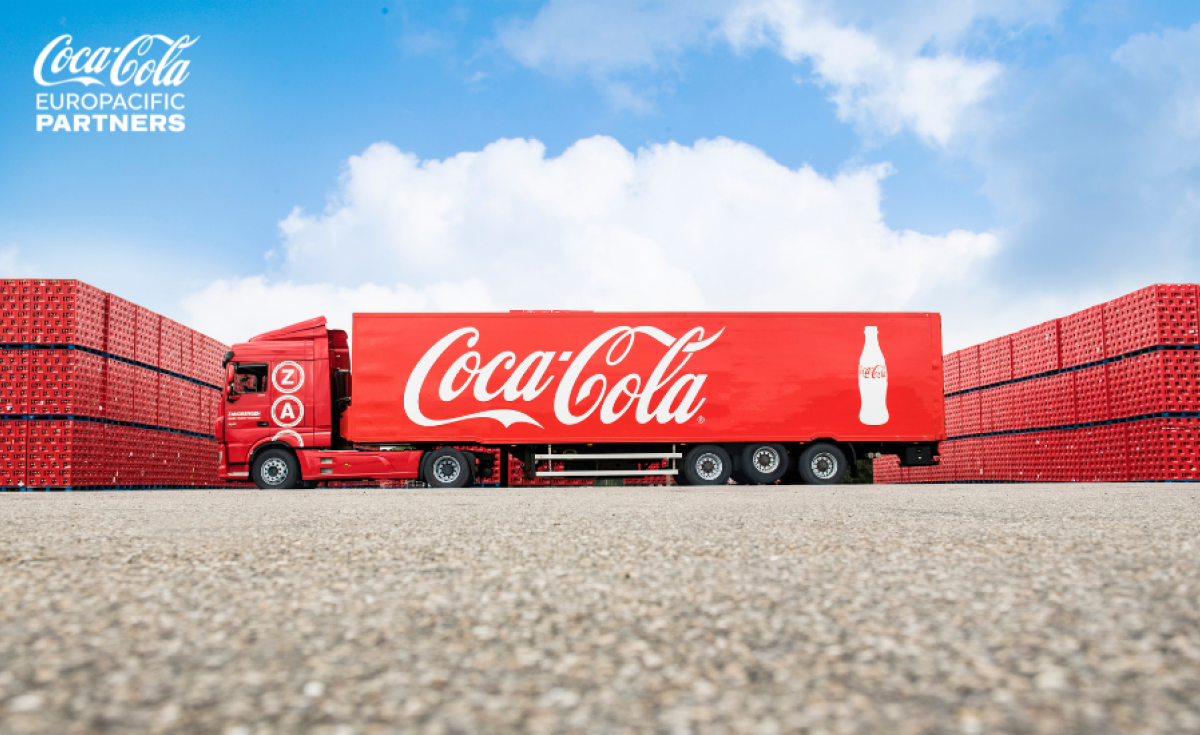News
Coca-Cola Europacific Partners makes total switch to biofuel in the Netherlands to lower carbon emissions from its third party logistics

22/02/2022
Action on Climate, Sustainability |
News

22/02/2022
Action on Climate, Sustainability |
As part of its net zero 2040 ambition and target to reduce its value chain GHG emissions by 30% by 2030, CCEP has switched to using bio-fuel across its entire third party logistics fleet in the Netherlands.
CCEP collaborated with its local transport partners Van Rijen, Zandbergen, Snel Logistics Solutions and T-Trex, to run the truck fleet on 100% Hydrotreated Vegetable Oil (HVO100). HVO100 biofuels are renewable and fossil-free fuels that are made by processing vegetable oils and animal fats that no longer have a function.
CCEP is the first soft drink company in the Netherlands with a truck fleet running solely on HVO100, and this switch will reduce GHG emissions across its third party logistics locally by up to net 90% compared to the use of fossil fuels.
You can find the full press release here (in Dutch).
To reach our net zero ambition and GHG reduction targets we are addressing emissions across our entire value chain, so it’s vital that we collaborate with our customers, suppliers and partners to make the impact we need to. By supporting our third-party logistics in the switch to fossil fuel alternatives, we’re collectively reducing transport and distribution emissions, accelerating us towards a low-carbon future.
In Great Britain, CCEP has helped its longest serving logistics provider, MJD Group, to make the switch to HVO100 fuels across all its haulage operations, cutting their emissions by 17,000 metric tonnes of CO2e per year. More information is available here.
In Sweden, all of the trucks that CCEP third-party hauliers use to deliver to customers are powered by alternative fuels, such as HVO and biogas.
The switch to lower carbon fuels is one of the actions CCEP is taking to reach its ambition to become net zero by 2040, as it seeks new ways to accelerate the decarbonisation of its business.